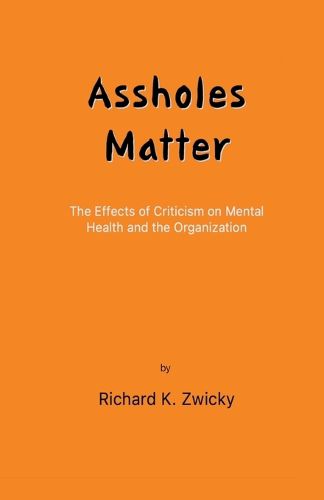Readings Newsletter
Become a Readings Member to make your shopping experience even easier.
Sign in or sign up for free!
You’re not far away from qualifying for FREE standard shipping within Australia
You’ve qualified for FREE standard shipping within Australia
The cart is loading…






This title is printed to order. This book may have been self-published. If so, we cannot guarantee the quality of the content. In the main most books will have gone through the editing process however some may not. We therefore suggest that you be aware of this before ordering this book. If in doubt check either the author or publisher’s details as we are unable to accept any returns unless they are faulty. Please contact us if you have any questions.
Being constructive and respectful is easy, so why do we need to expose it as a business communication challenge?
Because humans are complicated creatures and we are often unaware of idiosyncracies in our behavior. To become better managers and leaders, we need to be made aware of our weaknesses and encouraged to make the necessary changes in ourselves to improve!
As leaders, we set the tone for others to take the appropriate steps on their own journeys toward self-improvement. We do so by implementing systems focused on open and respectful communication between all staff. These systems are a hallmark of well-managed, high-performing modern workplaces. Mastering the art of constructive feedback promises to elicit employees' full talents toward shared goals. Leaders play a pivotal role in instituting clear guidelines and modeling human-centered communication.
Insightful leaders recognize themselves as coaches rather than arbiters of judgment policing compliance. The key to eliciting peak performance in people lies in elevating human dignity. All employees possess unique talents that leaders can channel towards service and self-actualization when environments secure enough safety for risk-taking. By combining compassion and accountability, leaders create psychologically safe cultures that court creativity rather than conflict.
No matter how successful, business leaders need to continuously explore how to use criticism productively to promote growth and learning in organizations.
Constructive criticism focuses on behaviors rather than personal attributes, offers specific guidance for improvement, and is delivered respectfully. This builds trust, engagement, and a culture of continuous learning.
Offering evidence-based strategies for leaders seeking to transform workplace culture through positive communication, this book provides readers with valuable insights, perspective, tips and real-world examples to improve their communication skills and the skills and productivity of those around them.
$9.00 standard shipping within Australia
FREE standard shipping within Australia for orders over $100.00
Express & International shipping calculated at checkout
This title is printed to order. This book may have been self-published. If so, we cannot guarantee the quality of the content. In the main most books will have gone through the editing process however some may not. We therefore suggest that you be aware of this before ordering this book. If in doubt check either the author or publisher’s details as we are unable to accept any returns unless they are faulty. Please contact us if you have any questions.
Being constructive and respectful is easy, so why do we need to expose it as a business communication challenge?
Because humans are complicated creatures and we are often unaware of idiosyncracies in our behavior. To become better managers and leaders, we need to be made aware of our weaknesses and encouraged to make the necessary changes in ourselves to improve!
As leaders, we set the tone for others to take the appropriate steps on their own journeys toward self-improvement. We do so by implementing systems focused on open and respectful communication between all staff. These systems are a hallmark of well-managed, high-performing modern workplaces. Mastering the art of constructive feedback promises to elicit employees' full talents toward shared goals. Leaders play a pivotal role in instituting clear guidelines and modeling human-centered communication.
Insightful leaders recognize themselves as coaches rather than arbiters of judgment policing compliance. The key to eliciting peak performance in people lies in elevating human dignity. All employees possess unique talents that leaders can channel towards service and self-actualization when environments secure enough safety for risk-taking. By combining compassion and accountability, leaders create psychologically safe cultures that court creativity rather than conflict.
No matter how successful, business leaders need to continuously explore how to use criticism productively to promote growth and learning in organizations.
Constructive criticism focuses on behaviors rather than personal attributes, offers specific guidance for improvement, and is delivered respectfully. This builds trust, engagement, and a culture of continuous learning.
Offering evidence-based strategies for leaders seeking to transform workplace culture through positive communication, this book provides readers with valuable insights, perspective, tips and real-world examples to improve their communication skills and the skills and productivity of those around them.